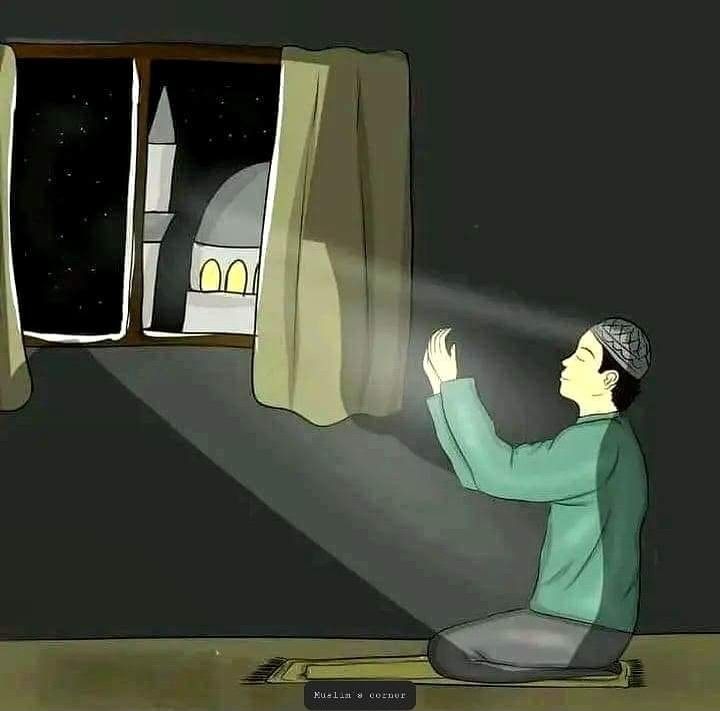
“Sami Allahu Liman Hamidah” is a phrase we repeat in every Salah, yet many of us rarely pause to reflect on its depth. More than just words, it is a reminder that Allah accepts the gratitude of His servants and that our prayer is not empty motion, but a living act of worship taught by the Prophet ﷺ.
In this blog, we’ll explore its meaning, when and how Muslims recite it, the hadith that mention it, and the spiritual lessons it brings to our daily lives.
Introduction to “Sami Allahu Liman Hamidah”
Among the most beautiful phrases in our daily prayers is the statement: “Sami Allahu Liman Hamidah” — “Allah hears the one who praises Him.” This phrase is not only part of the ritual of Salah, but it also carries a deep spiritual meaning. It reminds us that Allah is always aware of our gratitude and that He responds to the hearts that are filled with praise.
The Prophet ﷺ taught us that prayer is not simply a set of movements; it is a dialogue with Allah. Every word we say in Salah has wisdom behind it, and this phrase in particular teaches us about gratitude, humility, and recognition of Allah’s blessings.
The phrase “Sami Allahu Liman Hamidah” in Arabic and its English translation
The phrase in Arabic:
سَمِعَ اللَّهُ لِمَنْ حَمِدَهُ
Transliteration: Sami Allahu Liman Hamidah
Translation: “Allah hears the one who praises Him.”
This is not just a literal statement. It means that Allah accepts and acknowledges the praise of His servant. As Allah says in the Quran:
وَإِذْ تَأَذَّنَ رَبُّكُمْ لَئِن شَكَرْتُمْ لَأَزِيدَنَّكُمْ
“If you are grateful, I will surely increase you [in favor].”
(Surah Ibrahim 14:7)
So, when we say “Sami Allahu Liman Hamidah,” we are affirming that Allah indeed hears and responds to our gratitude.
When and how “Sami Allahu Liman Hamidah“ is recited in prayer

This phrase is recited during Salah when rising from the position of rukūʿ (bowing).
- The imam (or a person praying alone) says: “Sami Allahu Liman Hamidah.”
- The congregation responds: “Rabbana wa laka al-hamd” (Our Lord, to You belongs all praise).
Connection to the Prophet’s ﷺ teachings on Salah
The Prophet ﷺ placed great emphasis on humility and gratitude in Salah. When he prayed, his actions and words were filled with khushūʿ (humble devotion). Saying “Sami Allahu Liman Hamidah” is one of the ways he taught us to express our gratitude to Allah in every unit of prayer.
He ﷺ said:

“The closest a servant comes to his Lord is while he is in prostration, so increase supplication in it.”
(Sahih Muslim)
Though this hadith speaks about sujood, the principle applies throughout Salah — every movement and phrase is a moment of closeness to Allah. Sami Allahu Liman Hamidah is one of those moments where the believer rises from bowing in humility to stand in praise before his Lord.
This phrase connects us to a larger teaching of the Prophet ﷺ: that Salah is not just ritual, but a conversation. Allah listens to us when we praise Him, and we in turn should remember Him with hearts full of gratitude.
Meaning and Significance
The phrase “Sami Allahu Liman Hamidah” is more than a statement in prayer; it is a reminder of our relationship with Allah. To understand its depth, we must first look at its linguistic meaning and then reflect on the spiritual lessons it carries.
Linguistic meaning of “Sami Allahu Liman Hamidah”

In Arabic, the word “Samiʿa” (سَمِعَ) means to hear, but in the Quranic sense, it goes beyond physical hearing. It means that Allah hears, accepts, and responds.
The phrase as a whole — “Sami Allahu Liman Hamidah” — translates as:
“Allah hears (responds to/accepts) the one who praises Him.”
Here, “ḥamidah” refers to the act of praising Allah with sincerity and acknowledgment of His blessings. So, the meaning is not just that Allah hears words of praise, but that He accepts them when they come from a grateful heart.
Allah reminds us in the Quran:
وَقَالَ رَبُّكُمُ ٱدْعُونِىٓ أَسْتَجِبْ لَكُمْ ۚ
“And your Lord says: ‘Call upon Me; I will respond to you.’”
This shows that Allah is always attentive to those who turn to Him with remembrance and praise.
Spiritual dimensions of praising Allah
Praising Allah is not only about reciting words — it is about recognizing His greatness, His mercy, and His constant blessings. When we rise from rukūʿ and say “Sami Allahu Liman Hamidah,” we are acknowledging that Allah is aware of our gratitude.
The Prophet ﷺ emphasized the value of praising Allah in Salah. He said:
“Allah does not listen to anything more beloved to Him than the Prophet reciting the Quran aloud in a pleasant tone.”
(Sahih al-Bukhari)
This hadith shows that Allah loves the voices of His servants when they praise Him sincerely. Salah gives us that opportunity in every rakʿah, and “Sami Allahu Liman Hamidah” is one of those special moments where our praise is elevated.
Reflection on gratitude and humility in Salah

Gratitude (shukr) is central to worship. Every movement of Salah is a reminder that we are dependent on Allah, and every word we recite is a chance to express thanks. Saying “Sami Allahu Liman Hamidah” teaches us humility — we bow down in rukūʿ, then rise up to affirm that Allah hears our praise.
The Quran says:
إِنَّ ٱللَّهَ لَا يُحِبُّ مَن كَانَ مُخْتَالًۭا فَخُورًا
“Indeed, Allah does not like the arrogant and boastful.”
(Surah An-Nisa 4:36)
Salah humbles us. We bow, we rise, we prostrate — all to declare that we are servants of Allah. And in the moment of saying “Sami Allahu Liman Hamidah”, we are reminded that true honor lies in humility and true richness lies in gratitude.
The Prophet ﷺ himself was an example of this. Aisha (RA) narrated that he would sometimes pray until his feet became swollen, and when asked why he exerted himself so much though his past and future sins were forgiven, he replied:
وعن عائشة رضي الله عنها، قالت: كان النبي صلى الله عليه وسلم ، يقوم من الليل حتى تتفطر قدماه، فقلت له: لم تصنع هذا يا رسول الله، وقد غفر لك ما تقدم من ذنبك وما تأخر؟ قال: “أفلا أكون عبدًا شكورًا”.
“Should I not be a grateful servant?”
(Sahih al-Bukhari, Sahih Muslim)
This is the spirit of “Sami Allahu Liman Hamidah.” It is a call for us to live in constant praise, humility, and gratitude to Allah, not only in Salah but in our daily lives.
In essence: The phrase reminds us that Allah hears and responds to our gratitude, that praising Him is a spiritual elevation, and that humility and shukr are the essence of Salah.
When to Say “Sami Allahu Liman Hamidah”
This phrase is tied to a very specific part of Salah: the transition from rukūʿ (bowing) to the standing position. But its meaning extends far beyond a ritual phrase—it is a moment of gratitude and a reminder that Allah hears the praise of His servants.
The role of the Imam in congregational prayer

In congregational prayer (Salat al-Jamaʿah), the imam carries the responsibility of saying “Sami Allahu Liman Hamidah” aloud when he rises from rukūʿ.
This was the practice of the Prophet ﷺ, as narrated in Sahih al-Bukhari and Muslim. Abu Hurairah (RA) said:
“When the Messenger of Allah ﷺ said: Sami Allahu Liman Hamidah, those behind him would say: Rabbana laka al-hamd.”
(Sahih al-Bukhari, Sahih Muslim)
Here we see that the imam not only leads the prayer physically but also initiates the praise that the congregation responds to. His role is to set the rhythm of worship, reminding the community that Allah indeed hears the one who praises Him.
The response of the followers (Rabbana Lakal Hamd)
When the imam says “Sami Allahu Liman Hamidah,” the congregation responds with:
“رَبَّنَا وَلَكَ الْحَمْدُ”
(Rabbana wa laka al-hamd), meaning: “Our Lord, and to You belongs all praise.”
This exchange between imam and followers reflects the beauty of collective worship. The imam declares that Allah hears the one who praises Him, and the congregation confirms it by directing praise back to Allah.
This shows us that the response is not just ritual—it carries forgiveness and mercy for those whose hearts and words align with the angels.
Application in individual prayer

When praying individually, the worshipper takes both roles—the imam and the follower.
- After rising from rukūʿ, the person should first say: “Sami Allahu Liman Hamidah”
- Then follow it with: “Rabbana wa laka al-hamd.”
This was the practice of the Prophet ﷺ when he prayed alone. It teaches us that whether in congregation or individually, we are never alone in Salah. Our praise is always heard by Allah, and our gratitude is always accepted when offered sincerely.
The Prophet ﷺ also encouraged lengthening this standing position after rukūʿ, filling it with praise and supplication. Abdullah ibn Abi Awfa (RA) narrated:
“The Prophet ﷺ, when he raised his head from rukūʿ, used to say: Samiʿa Allāhu liman ḥamidah, Allahumma Rabbana laka al-hamd, milʾ as-samawati wa milʾ al-ard wa milʾ ma shiʾta min shayʾin baʿd.”
(Sahih Muslim)
This shows that the phrase can be expanded into deeper praise, reflecting a heart overflowing with gratitude.
In short:
- The imam says “Samiʿa Allāhu liman ḥamidah.”
- The followers respond with “Rabbana wa laka al-hamd.”
- When praying alone, the worshipper says both.
This moment in Salah is a powerful reminder: Allah listens to the one who praises Him, and in return, the believer’s heart should be filled with gratitude.
Rewards and virtues linked to saying it properly

The Prophet ﷺ encouraged the ummah to recite this phrase sincerely, with the promise of forgiveness.
He ﷺ said:
“When the Imam says: Sami Allahu Liman Hamidah, then say: Allahumma Rabbana laka al-hamd. Whoever’s statement coincides with that of the angels, his past sins will be forgiven.”
(Sahih al-Bukhari, Sahih Muslim)
This hadith highlights:
- The reward of forgiveness — a chance for sins to be wiped out simply by aligning our hearts and tongues in praise.
- The importance of attentiveness — timing and sincerity matter, as the response mirrors the praise of the angels.
It shows that Salah is not just a ritual but a connection to the unseen, where believers join the angels in glorifying Allah.
Common mistakes and corrections in recitation
Like many parts of Salah, “Sami Allahu Liman Hamidah” is sometimes recited incorrectly. Here are a few common issues and their corrections:
- Mixing the roles of Imam and followers:
- Mistake: Followers saying “Samiʿa Allāhu liman ḥamidah” aloud behind the imam.
- Correction: Only the imam (or one praying alone) says it. The followers respond with “Rabbana wa laka al-hamd.”
- Rushing through the standing position (qiyām):
- Mistake: Rising from rukūʿ and immediately going into sujood without pausing.
- Correction: The Prophet ﷺ would stand upright fully, recite praise, and lengthen this position. He even considered rushing a flaw in prayer.
“The worst thief is the one who steals from his prayer.”
They asked: “O Messenger of Allah, how does he steal from his prayer?”
He said: “He does not complete his bowing and prostration.”
(Sunan an-Nasa’i, authenticated by Al-Albani)
- Incorrect pronunciation:
- Sometimes the word “ḥamidah” is pronounced incorrectly. It should be said clearly as:
ḥa-mi-da-h (حَمِدَهُ) — with proper stress on the middle syllable.
- Sometimes the word “ḥamidah” is pronounced incorrectly. It should be said clearly as:
Correcting these mistakes ensures that the prayer is performed in line with the Prophet’s ﷺ sunnah, and that its meaning is preserved.
Practical Tips for Learners
Learning the phrase “Samiʿa Allāhu liman ḥamidah” is easy, but doing it correctly and meaningfully takes some guidance. Here are practical tips for anyone learning Salah.
Correct pronunciation and Tajweed guidance
- Pronounce each word clearly:
- Samiʿa (سَمِعَ) — stress the “miʿ”
- Allahu (اللَّهُ) — ensure the “h” is soft
- Liman (لِمَنْ) — short, flowing
- Hamidah (حَمِدَهُ) — emphasize the middle syllable “mi”
- Tajweed matters: Even small movements of the tongue or lips make the recitation beautiful and correct. You can practice with audio from reliable Quran teachers.
- Take your time: Don’t rush. When rising from rukūʿ, stand fully, recite clearly, and let the words sink in.
Teaching children and new Muslims

- Start with repetition: Have children or new Muslims repeat the phrase slowly several times.
- Visual aids help: Writing it in Arabic with transliteration underneath allows learners to associate sounds with letters.
- Explain the meaning: Even a short explanation like “Allah hears you when you praise Him” builds understanding and connection.
- Praise effort: Every attempt counts; encourage learners to say it aloud during practice prayers.
Lessons from “Sami Allahu Liman Hamidah”
The significance of this phrase extends beyond Salah. Reflecting on it can shape our spiritual lives.
- Cultivating gratitude in everyday life
The phrase reminds us that gratitude is key to closeness with Allah. Every time we acknowledge blessings — whether food, family, or health — we mirror the praise expressed in Salah.
Saying Samiʿa Allāhu liman ḥamidah in prayer trains the heart to see Allah’s blessings in all aspects of life.
- Strengthening connection with Allah through Salah
Every repetition is a moment of mindful worship. When we stand after rukūʿ, praising Allah, we align our hearts with our actions. The Prophet ﷺ taught that sincere Salah is a conversation with Allah — this phrase is one of the clearest examples of that dialogue.
- Transforming ritual into spiritual experience
- Reflect on humility: Rising from bowing reminds us that we are servants seeking our Lord’s mercy.
- Focus on meaning, not just words: Imagine Allah listening to your praise
- Take a deep breath between movements: This allows the heart to catch up with the body.
Over time, even routine prayers become moments of heartfelt connection and spiritual nourishment.
Conclusion
The phrase “Samiʿa Allāhu liman ḥamidah” is more than a moment in Salah — it is a reminder that Allah ﷻ hears and accepts the praise of His servants. Each time it is recited, the believer affirms gratitude, humility, and obedience, following the example of the Prophet ﷺ. When practiced with sincerity, this short phrase transforms our prayer into a living connection with Allah, filling it with presence of heart rather than empty routine.
To truly embody its meaning, Muslims need not only to perfect the pronunciation but also to nurture the spirit behind it. Learning Salah with understanding brings depth, tranquility, and purpose to worship.
At Areeb Academy, we help learners of all ages strengthen their Salah and deepen their relationship with Allah through Quran recitation, memorization, Tafseer, Islamic Studies, and Arabic Fusha. With live, interactive classes led by expert teachers, you can master both the words and the meanings of your prayer.
✨ Begin your journey with Areeb Academy today — and let every “Samiʿa Allāhu liman ḥamidah” be a step closer to gratitude, humility, and closeness to Allah.


